This is an excerpt from Please Like Me, BuzzFeed News’ newsletter about how influencers are battling for your attention. You can sign up here.
Influencers getting vaccinated are new targets for right-wing conspiracy theorists, but many are rising to the challenge
For most of last year, influencers were under pressure as the world became scarier and scarier. The COVID-19 pandemic destroyed our lives, the US grappled with its long history of racial violence, and the presidential election and subsequent insurrection shook us all.
Influencers faced a choice: acknowledge current events, no matter how outside their usual content and comfort level, or risk becoming irrelevant. Now many are. With vaccinations for COVID-19 now available to all American adults, many popular influencers are proudly sharing that they have gotten their shots. This obviously shouldn’t be a political move, but it is. If you don’t believe me, check out the comments on just one influencer’s post about getting the vaccine. Catherine Giudici Lowe has been flooded with anti-vax rhetoric after posting a selfie to her grid showing off her jab:
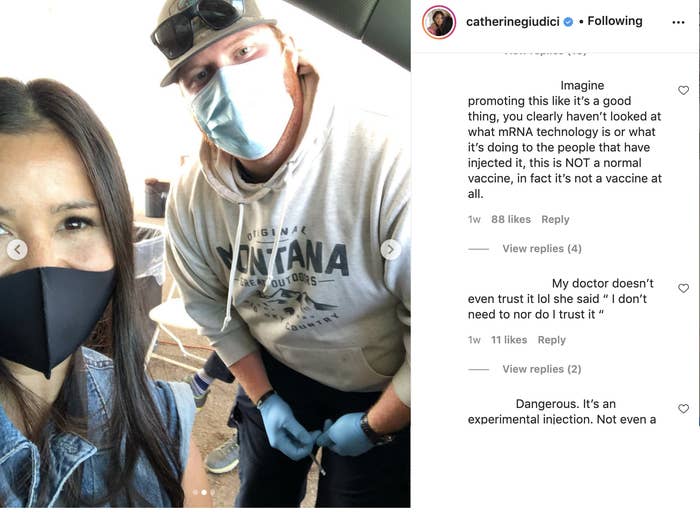
Some of the comments on Lowe’s post reveal another disturbing trend. One commenter wrote, “$1300 richer! 🤷♀️” Another said, “I hope you weren’t paid to post this.”
What these commenters are referring to is a rumor flying around Instagram that influencers have been or are being paid by pharmacies to get the COVID-19 vaccine. This rumor has been floated by a few conspiracy theorists, but it gained traction when the influencer Allie May (@prvbsthirtyonegirl) posted about it to her 200,000-plus followers.
In her story, Allie shared an alleged partially redacted ad from CVS prompting influencers to do a campaign with them surrounding the vaccine rollout. She told her followers they are being “influenced.”
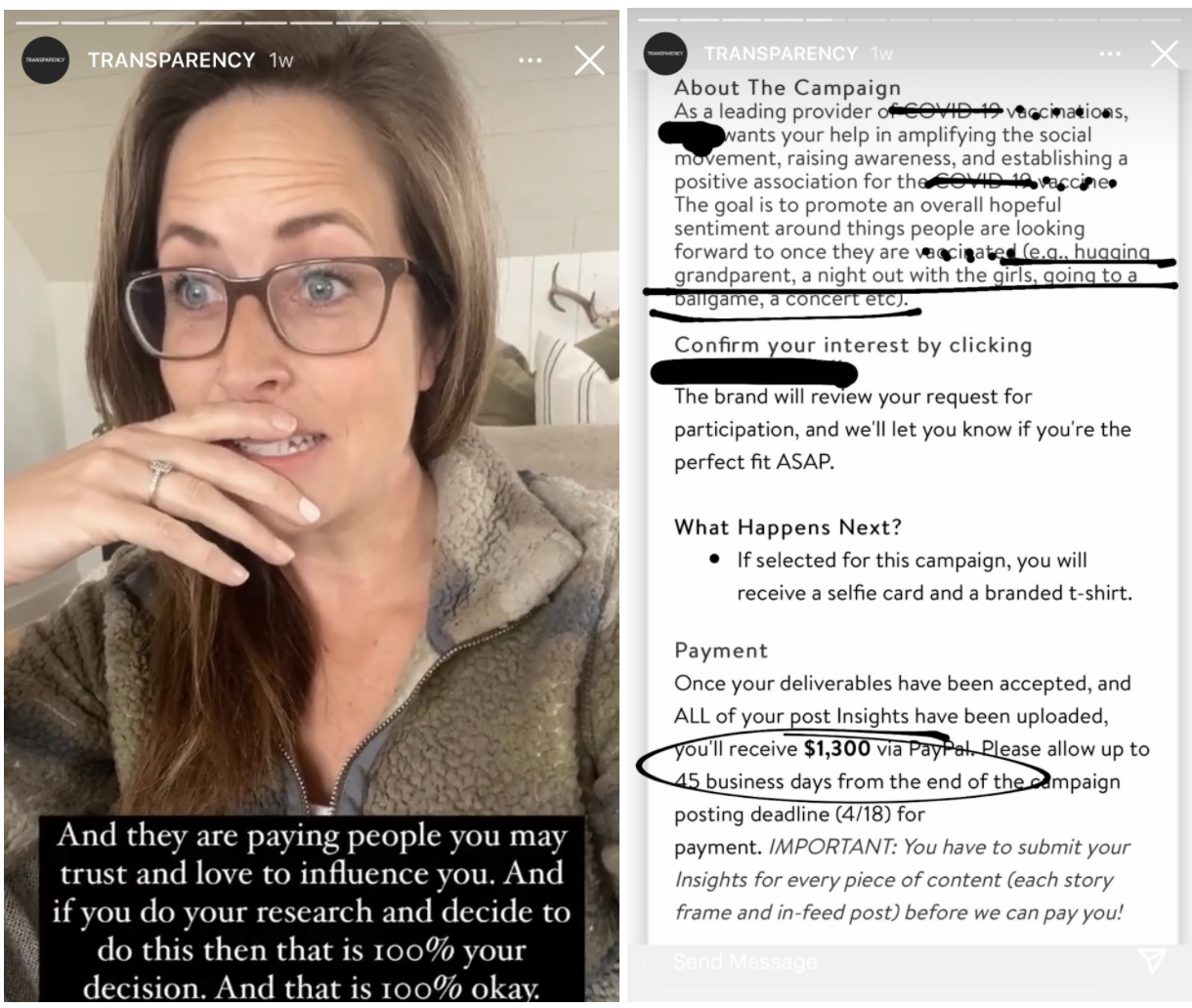
“They are paying people that you trust and love...it just doesn’t sit right,” she said. “For something that is going into you that we don’t know the effects.”
I haven’t followed Allie closely (she actually blocked me before I knew who she was and didn’t return a request for comment), so I don’t know if this post is typical for her. But her message is part of a larger trend.
After Joe Biden’s inauguration, a lot of the big conspiracy theory and QAnon Instagram accounts and rhetoric seem to have had the wind taken out of their sails a bit, possibly since Q’s predictions never materialized. Accounts like Little Miss Patriot (now going by Lexie Lively) and @roseuncharted are still around and still posting their conspiracy theories, but the volume has been turned down. In my personal daily Instagram scrolling, I have noticed a lot less of the BS that has been shared on the platform about QAnon, child sex trafficking, COVID conspiracies, and more.
The wide rollout of the vaccine, though, has been surrounded by different conspiracy theories. It seems these same conspiracy accounts have a new storyline to push, posting frequently about the vaccines and weirder and weirder theories about them.
To help squash these theories, other influencers feel compelled to share themselves getting the shot. They are doing a pretty good job. One, Lynzy Coughlin, even investigated the CVS rumor in detail. (She didn’t return a request for comment in time for publication.) Coughlin is a good candidate to challenge rumors like this one: In addition to her career as a blogger and an influencer, she is a physician assistant in an emergency department and has been sharing a ton of information about the vaccines with her followers.
Coughlin shared in her Instagram story that the so-called CVS sponsorship had apparently been misread. CVS wasn’t offering influencers money to get the vaccine; she argued, it was asking them to get the vaccine at CVS, as opposed to another location. CVS, which posted the ad via influencer marketing company Obvious.ly, Coughlin said, just wanted people to get their vaccines at its pharmacies to get more foot traffic in their stores.
A spokesperson from CVS told me that the intent of the campaign is solely to "drive awareness of the COVID-19 vaccine and encourage people to get vaccinated, and we are working with partners to help amplify this important message."
"The campaign does not require, nor have we asked, any participating partners to get the vaccine at CVS or anywhere else," the spokesperson said. "The only requirement of #OneStepCloser is to share the personal joys that partners are looking forward to experiencing once they have been fully vaccinated.
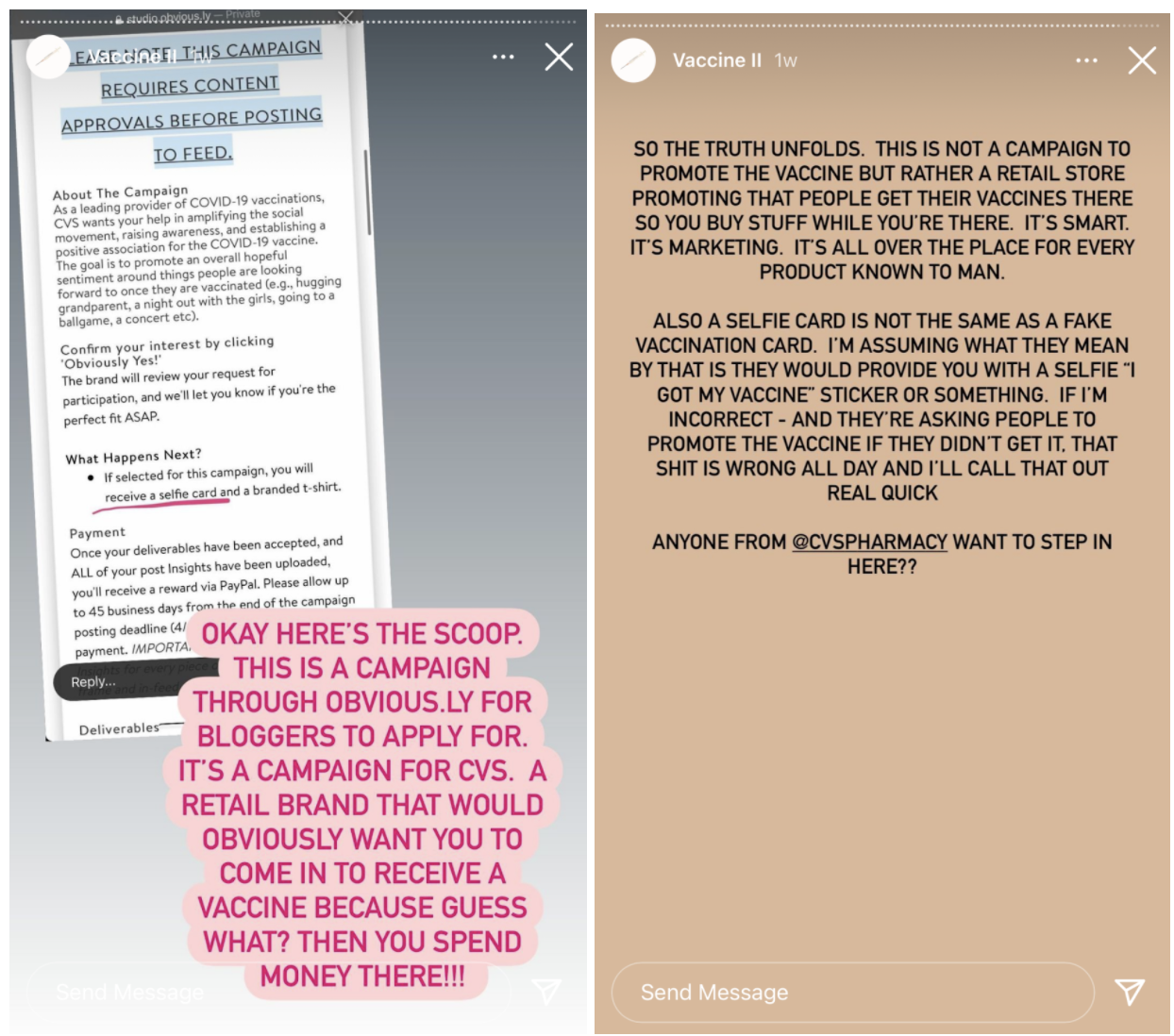
Many other influencers are also not taking the hate when they proudly post their shots. When someone DM’d Sivan Ayla (nearly 400,000 followers) about the rumor after she posted her #vaxxie, she called them out. (She also didn’t return a request for comment.)
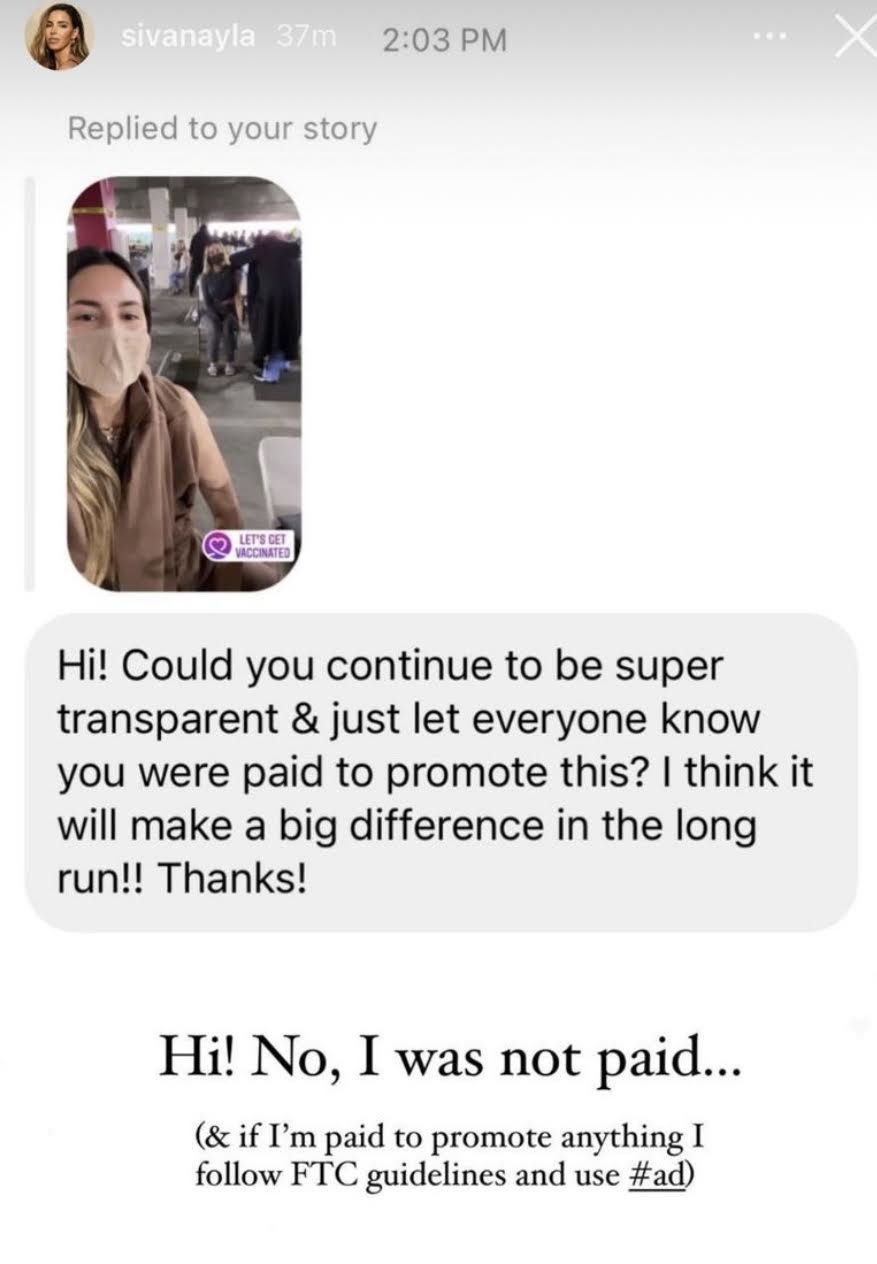
I could share countless other examples of influencers who are posting their vaccinations on their grids, showing everyone they are standing up for science and against conspiracy theories. Scrolling through, I have seen something else that’s encouraging: Many of these influencers’ comments are filled with exclamations of joy from other influencers, who are thanking them for sharing and cheering them on.
Influencers got a bad rap for not doing enough last year to combat the conspiracies taking over the platform, and for not speaking out enough about current events. But I have been encouraged by how many have taken this concrete stand for science, and for all of us. Posting a #vaxxie may seem trivial, but when you have a huge platform filled with people who may be scared to get vaccinated themselves, it is huge (in fact, in Indonesia, influencers are being paid to get the vaccine for this very reason). Influencers are fighting back against the misinformation that hurt so many in 2020, and standing up for what they believe in.
Dare I say, I almost feel…hope?
—Stephanie McNeal
TikTok drama is just not hitting the same as we slowly move out of lockdown
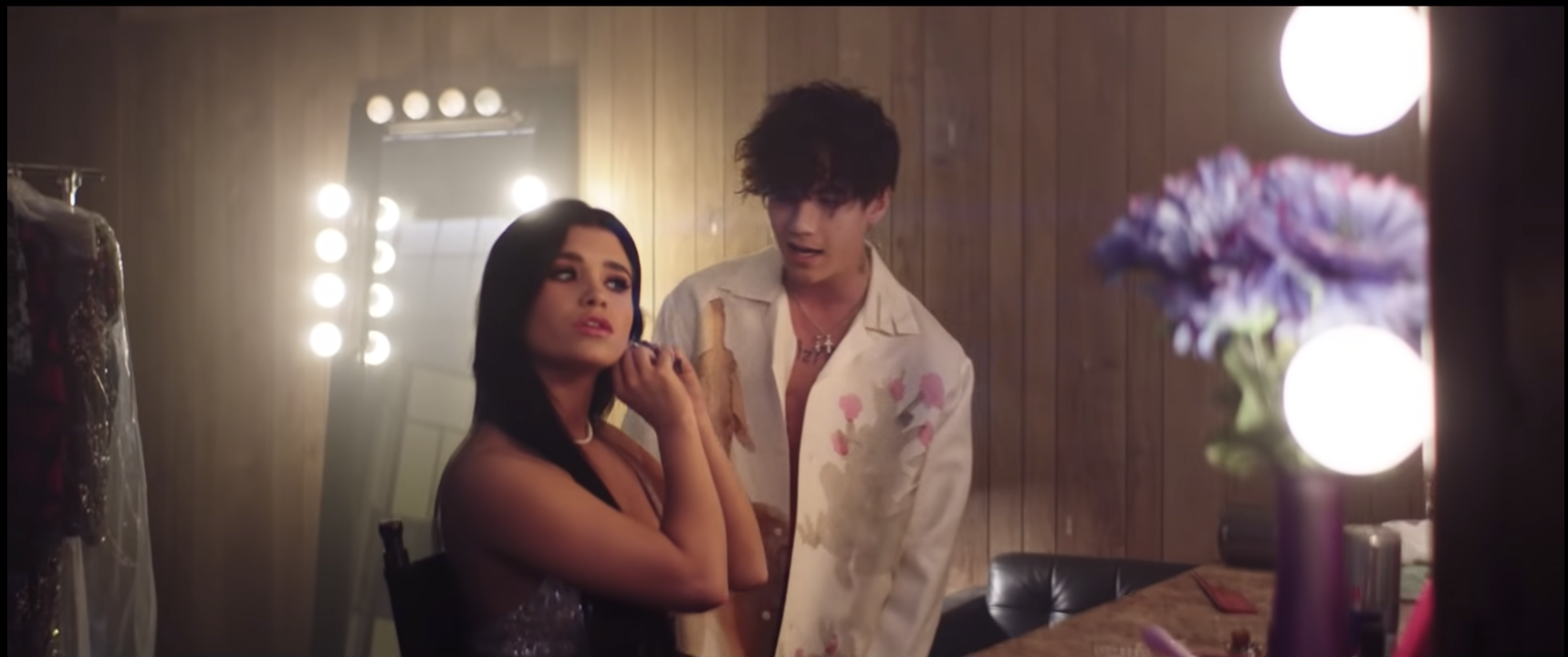
Last July, I was enthralled by the sophomoric Charli-Chase-Nessa love triangle. It was the tale of one TikTok star (Chase Hudson) allegedly betraying his ex (Charli D’Amelio) by hooking up with a mutual friend (Nessa Barrett), who’s the ex of a guy in a rival TikTok House (Josh Richards).
The fallout gave me Laguna Beach nostalgia, except it was playing out live, online, as we were all cooped up inside due to COVID. Petty young influencer drama was the escapism many of us needed at the time.
Now, as new love triangles — nay, a love rectangle, actually! — are forming and getting messy, the drama doesn’t quite hit the same for me anymore.
Barrett, who was a part of last year’s mess with Hudson and D’Amelio, is at the center of a new TikTok scandal. In February, Barrett and another TikToker, Jaden Hossler, released a song together called “la di die.” (Footnote: It’s a pretty good song.)
Fans loved the song and the collab between two friends… At least, everyone thought they were just friends at the time. Barrett and Hossler both had long-term partners: Barrett was with Richards and Hossler was with another TikToker, Mads Lewis.
As this explainer lays out, sometime after the song’s release and promotion, rumors started swirling that Barrett and Hossler were a couple. Lewis revealed on an episode of Call Her Daddy that she discovered flirty texts from Barrett to Hossler when she was still dating him. The long-term couples broke up over this, and Barrett and Hossler have now been seen together. (Another footnote: All four characters in this saga were friends with each other.)
Is this level of young people tabloid drama very inconsequential to me? Yes. But petty internet drama can be a respite from the cruel realities of our real world. At least for me, TikTok fodder like this has been a way to distract myself when processing national traumas feels too overwhelming. At the height of adjusting to new COVID realities, I was almost grateful to these young, rich, overly enabled people for publicizing their frivolities.
Lately, however, they don’t have the same power. Maybe it’s because we’re gradually moving out of COVID sheltering in place as more and more people get vaccinated. Maybe we no longer have the same dependencies on TikTok that the pandemic created. Maybe the realities of the offline world, in all of its social injustices, are now impossible to take breaks from, even if those breaks can be healthy.
Maybe we’re all languishing.
All I know is that drama like this continues to be a staple in the celebrity industry, in traditional Hollywood as well as internet Hollywood. Barrett and Hossler ultimately win out, creating more hype for their song. Their music video has been watched over 21 million times.
Perhaps my languish, aka depression lite, can be a tiny threat to the industry norm.
Until next time,
Tanya

